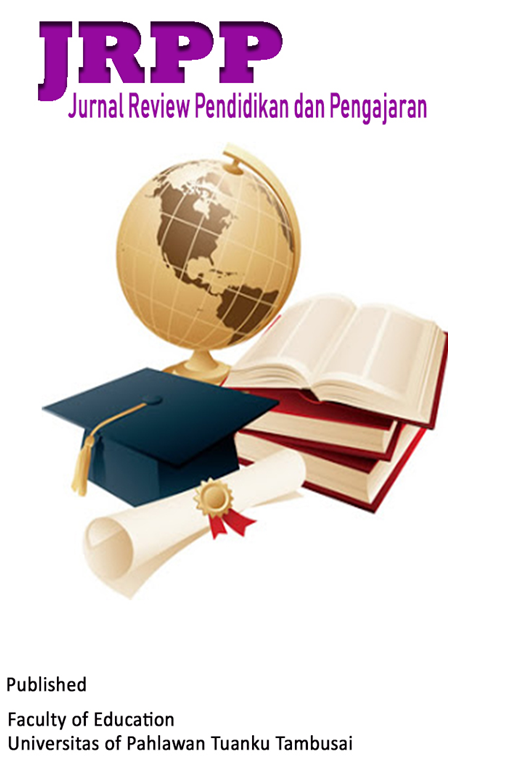OPTIMALISASI STRATEGI PENGEMBANGAN SUMBER DAYA MANUSIA PENDIDIKAN DALAM MENINGKATKAN KESEJAHTERAAN MASYARAKAT
DOI:
https://doi.org/10.31004/cdj.v5i2.27300Keywords:
Sumber Daya Manusia, Pendidikan, Kesejahteraan MasyarakatAbstract
Pendidikan memiliki peran penting dalam pembangunan masyarakat. Melalui pendidikan yang berkualitas, masyarakat dapat meningkatkan kualitas hidup, mengurangi kemiskinan, dan menciptakan peluang ekonomi yang lebih baik. Penelitian ini akan secara mendalam menganalisis tentang optimalisasi strategi pengembangan sumber daya manusia pendidikan dalam meningkatkan kesejahteraan Masyarakat. Metode penelitian yang digunakan adalah tinjauan pustaka kualitatif dengan pengumpulan data melalui Google Scholar dalam rentang tahun 2013-2023. Hasil studi menunjukkan bahwa optimalisasi strategi pengembangan sumber daya manusia (SDM) pendidikan memegang peranan kunci dalam meningkatkan kesejahteraan masyarakat. Berbagai strategi, seperti pemberian pendidikan dan pelatihan yang berkualitas bagi para guru dan tenaga pendidik, peningkatan kualitas kurikulum, pengembangan pemimpin pendidikan, dan peningkatan fasilitas belajar, semuanya berkontribusi terhadap peningkatan kualitas pendidikan dan, akibatnya, kesejahteraan masyarakat secara keseluruhan.References
Ausat, A. M. A. (2022). Positive Impact of The Covid-19 Pandemic on The World of Education. Jurnal Pendidikan, 23(2), 107–117. https://doi.org/10.33830/JP.V23I2.3048.2022
Ausat, A. M. A., Massang, B., Efendi, M., Nofirman, N., & Riady, Y. (2023). Can Chat GPT Replace the Role of the Teacher in the Classroom: A Fundamental Analysis. Journal on Education, 5(4), 16100–16106. https://doi.org/10.31004/joe.v5i4.2745
Batubara, N. F., & Davala, M. (2023). curriculum development in indonesia: historical study. International Journal of Students Education, 29–34.
Darling-Hammond, L., Flook, L., Cook-Harvey, C., Barron, B., & Osher, D. (2020). Implications for educational practice of the science of learning and development. Applied Developmental Science, 24(2), 97–140. https://doi.org/10.1080/10888691.2018.1537791
Dunlosky, J., Rawson, K. A., Marsh, E. J., Nathan, M. J., & Willingham, D. T. (2013). Improving Students’ Learning With Effective Learning Techniques. Psychological Science in the Public Interest, 14(1), 4–58. https://doi.org/10.1177/1529100612453266
Faturohim, A., Akbar, A., Hidayat, B. A., & Saksono, H. (2023). An Analysis of Urban Poverty and Unemployment. Jurnal Bina Praja, 15(2), 309–324. https://doi.org/10.21787/jbp.15.2023.309-324
Fauzi, F., Tuhuteru, L., Sampe, F., Ausat, A. M. A., & Hatta, H. R. (2023). Analysing the Role of ChatGPT in Improving Student Productivity in Higher Education. Journal on Education, 5(4), 14886–14891. https://doi.org/10.31004/joe.v5i4.2563
Frameiliada, D., Setiawan, S., Azizah, T., & Margarida, K. (2023). Learning Facilities in Supporting the Process Learning and Learning Motivation. Scientechno: Journal of Science and Technology, 2(2), 118–124. https://doi.org/10.55849/scientechno.v2i2.162
Ghavifekr, S., & Rosdy, W. A. W. (2015). Teaching and Learning with Technology: Effectiveness of ICT Integration in Schools. International Journal of Research in Education and Science, 1(2), 176–191.
Hahn, R. A., & Truman, B. I. (2015). Education Improves Public Health and Promotes Health Equity. International Journal of Health Services, 45(4), 657–678. https://doi.org/10.1177/0020731415585986
Harini, H., Wahyuningtyas, D. P., Sutrisno, S., Wanof, M. I., & Ausat, A. M. A. (2023). Marketing Strategy for Early Childhood Education (ECE) Schools in the Digital Age. Jurnal Obsesi?: Jurnal Pendidikan Anak Usia Dini, 7(3), 2742–2758. https://doi.org/10.31004/obsesi.v7i3.4454
Johnson, D. (2017). The Role of Teachers in Motivating Students To Learn. BU Journal of Graduate Studies in Education, 9(1), 46–49.
Kamalov, F., Santandreu Calonge, D., & Gurrib, I. (2023). New Era of Artificial Intelligence in Education: Towards a Sustainable Multifaceted Revolution. Sustainability, 15(16), 12451. https://doi.org/10.3390/su151612451
Kioupi, V., & Voulvoulis, N. (2019). Education for Sustainable Development: A Systemic Framework for Connecting the SDGs to Educational Outcomes. Sustainability, 11(21), 6104. https://doi.org/10.3390/su11216104
Lase, D. (2019). Education and Industrial Revolution 4.0. Jurnal Handayani, 10(1), 1–15.
Leonard, G., Lassiter, J. W., Hammill, R., & LeCrom, C. W. (2023). Service-Learning and the Development of Interpersonal Skills in Pre-Professional Undergraduate Students. Pedagogy in Health Promotion, 9(2), 82–91. https://doi.org/10.1177/23733799221074626
Muktamar B, A., Kardini, N. L., Elshifa, A., Adiawaty, S., & Cicik Wijayanti, T. (2023). The Role of Quality Human Resources in Developing Missions of Future Universities in Indonesian Higher Education. Munaddhomah: Jurnal Manajemen Pendidikan Islam, 4(1), 49–59. https://doi.org/10.31538/munaddhomah.v4i1.342
Parker, R., Thomsen, B. S., & Berry, A. (2022). Learning Through Play at School – A Framework for Policy and Practice. Frontiers in Education, 7, 1–12. https://doi.org/10.3389/feduc.2022.751801
Sholeh, M., Jannah, R., Khairunnisa, K., Kholis, N., & Tosson, G. (2021). Human Resource Management in Improving The Quality Of Teachers in Indonesian Islamic Primary Education Institutions. Al-Bidayah?: Jurnal Pendidikan Dasar Islam, 13(1), 21–36. https://doi.org/10.14421/al-bidayah.v13i1.628
Trihapsari, C., Mujahidah, F., & Humairoh, N. (2021). Enhancement of the quality of human resources through training and development programs in schools. AL-TANZIM: Jurnal Manajemen Pendidikan Islam, 5(2), 145–153. https://doi.org/10.33650/al-tanzim.v5i2.2325
Downloads
Published
How to Cite
Issue
Section
License
Copyright (c) 2024 Ade Ananto Terminanto, Herlina Herlina, Ahmad Gawdy Prananosa, Purwani Puji Utami, Cahyani Kurniastuti

This work is licensed under a Creative Commons Attribution-ShareAlike 4.0 International License.














